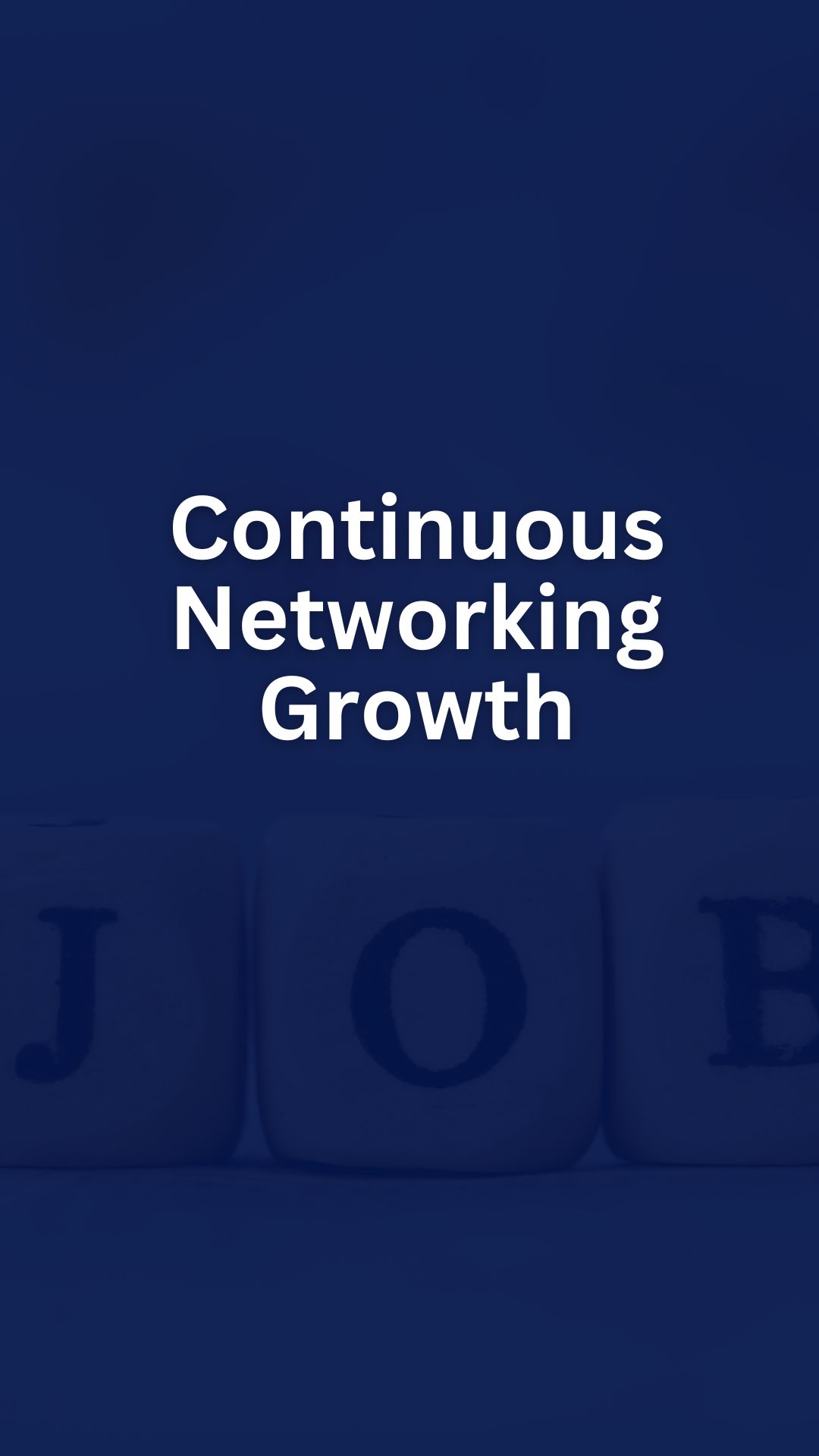Building a professional network from scratch might seem daunting at first, but it’s completely doable with the right steps and mindset.
You can create valuable connections that will help you grow in your career by taking specific actions and staying consistent.
Imagine meeting people who could turn into mentors, collaborators, or even lifelong friends. That’s the power of networking!
Start with the people close to you. Even if you don’t think they’re in your industry, you’d be surprised how connections can help.
Attend events, both online and offline, to meet new people and expand your circle.
Always follow up on meetings and be genuine in your interactions.
By showing real interest in others, you’ll find that networking becomes easier and more rewarding.

Understanding the Value of Networking
Networking can open doors to opportunities, create lasting relationships, and provide support in your professional journey.
Defining Professional Networking
Professional networking means building relationships with people in your industry. These connections can include colleagues, mentors, and industry leaders.
It’s not only about meeting people but also about nurturing these relationships over time.
Networking involves connecting on social media, attending industry events, and participating in relevant forums.
You share experiences, ideas, and resources.
Building a strong network can help you stay updated on industry trends and find new opportunities.
Benefits of Building a Robust Network
A strong network offers many benefits. First, it can lead to job opportunities. Employers often prefer candidates from trusted recommendations.
Networking can also help you access insights and advice from experienced professionals.
Having a network means having a support system. When facing challenges, you can turn to your contacts for guidance and help.
Additionally, being part of a network can boost your visibility in your field. People remember those who are active and engaged in the community.

Identifying Your Networking Goals
Before you start networking, you should know exactly what you want to achieve. This clarity will guide your efforts and make them more effective.
Setting Clear Objectives
Set specific goals for your networking efforts. Ask yourself what kind of connections you need. Do you want to find mentors, potential business partners, or job opportunities?
Write down your goals so you can refer back to them.
Prioritize these goals to stay focused.
For example:
- Goal 1: Find a mentor in your industry.
- Goal 2: Connect with potential clients or customers.
- Goal 3: Learn about job openings in your field.
Revisit and update your goals regularly to stay on track and adjust as needed.
Keeping your objectives clear will help you measure your progress and stay motivated.
Personal Branding Strategy
Personal branding is how you present yourself to others. It’s about creating a clear, professional image that reflects your goals and values.
Start by identifying your unique strengths and skills. Think about what makes you stand out.
Develop a consistent message and online presence.
Use these tips:
- Your Profile: Update your LinkedIn and other social media profiles.
- Your Pitch: Create a short, compelling elevator pitch about who you are and what you do.
- Your Content: Share valuable content related to your field.
Engage with others by commenting on posts, joining groups, and attending events.
Your personal brand should reflect your professional goals and help you connect with the right people.

Crafting Your Professional Identity
Your professional identity sets you apart and helps others see your unique value. Two key parts of this are your personal narrative and online presence.
Creating a Compelling Personal Narrative
Start by thinking about your strengths, skills, and experiences. What makes you unique?
Write a short story about your career journey. Include major achievements and challenges you’ve overcome.
Example Outline:
- Background: Briefly describe your previous roles.
- Skills: Highlight key skills you’ve developed.
- Achievements: Mention significant accomplishments.
- Goals: Share your future career goals.
Keep it concise and engaging. Practice your story until it feels natural to share in conversations or interviews.
Developing an Online Presence
Your online presence matters. It’s often where people first learn about you. Start with platforms like LinkedIn.
Profile Tips:
- Photo: Use a professional headshot.
- Headline: Write a clear, catchy headline.
- Summary: Write a summary that includes your key achievements.
Also, engage with content related to your field.
Share articles, comment on posts, and connect with professionals you admire.
This helps you stay visible and build relationships.

Effective Communication Skills
Mastering communication is key for building a professional network. By improving your small talk and active listening skills, you can connect more meaningfully with others.
Mastering the Art of Small Talk
Small talk helps you make connections in casual settings. Start with simple topics like weather, sports, or recent events.
Asking open-ended questions encourages the other person to share more. For example, ask, “What projects are you working on right now?”
Maintaining eye contact and smiling can make you seem approachable.
Pay attention to body language. If someone seems uninterested or busy, it might be best to wait for a better time to talk.
Practice with friends or family to get comfortable. The more you practice, the easier it will become to start conversations naturally.
Active Listening Techniques
Active listening shows you care about the speaker’s words.
Focus on what the other person is saying without interrupting.
Nod or use verbal cues like “I see” or “That’s interesting” to show you’re engaged.
Paraphrase or summarize what you’ve heard.
Saying “So, what you’re saying is…” helps ensure you’ve understood correctly. This also shows the speaker you value their opinion.
Avoid distractions like checking your phone.
Giving undivided attention makes the other person feel respected. With practice, active listening can help you form stronger, more genuine connections.

Using Social Media to Your Advantage
Using social media can make building a professional network easier and faster. Different platforms have unique features that you can use to connect with the right people and showcase your skills.
Leveraging LinkedIn
LinkedIn is perfect for professional networking. Start by creating a complete profile with a professional photo, a compelling summary, and detailed work experience.
Use keywords relevant to your industry so recruiters find you more easily.
Connect with coworkers, classmates, and industry leaders.
Personalize your connection requests to make them more meaningful.
Join groups related to your field to engage in discussions and share your knowledge. This can help you get noticed by potential employers or collaborators.
Publishing articles or posts on LinkedIn can also showcase your expertise.
Comment on posts from your connections to stay active and visible.
Engaging on Twitter
Twitter is great for real-time interactions. Follow industry leaders, companies, and hashtags relevant to your field.
Retweet and comment on content that interests you to build relationships.
Share your own insights, articles, and achievements.
Use short and engaging tweets to grab attention.
Participating in Twitter chats or live events can connect you with like-minded professionals.
Consistency is key.
Stay active by posting regularly and engaging with others. This keeps your profile visible and shows you’re involved in your field.

Attending Networking Events
Attending networking events can help you build valuable connections and create opportunities in your professional life.
Choose events that are relevant to your field and learn how to make a memorable impression on those you meet.
Selecting Relevant Events
Find events that relate to your career or interests. Look for industry conferences, seminars, and meetups. Use sites like Eventbrite or LinkedIn to search for local events.
Make sure the event aligns with your goals. If you’re looking for a job, attend career fairs. If you want to learn, go to workshops.
Focus on quality, not just quantity.
It’s also helpful to consider the size of the event.
Smaller events allow for more personal interactions, while larger ones offer more networking opportunities. Choose what’s best for you.
Making a Lasting Impression
Prepare before you go. Bring business cards and have a clear idea of what you want to say about yourself.
Practice a short introduction that highlights your skills and interests.
Dress appropriately to the event. Business casual is usually a safe bet. You want to look professional and approachable.
Be genuinely interested in others. Ask questions and listen more than you talk.
Remember names and details about the people you meet.
Follow up after the event with a friendly email or a LinkedIn connection request. This helps keep the relationship alive.

Fostering Meaningful Connections
Building lasting relationships and ensuring you maintain them can greatly enhance your professional network.
Focus on the value of each connection and keep in touch consistently.
Quality Over Quantity
When networking, it’s better to have a few strong connections than many weak ones. Aim for people who share your interests and values.
These relationships are more likely to be genuine and beneficial.
Invest your time in getting to know the person. Ask questions about their work and interests.
Listening is key. This helps you understand how you can help each other.
Strong relationships are built on trust.
Show that you are reliable and supportive. Help others when you can. They will appreciate it and be more willing to help you in return.
The Follow-Up
After meeting someone, follow up within a few days. Send a short message or email.
Mention something specific from your conversation. This shows you were paying attention and value the connection.
Make a habit of staying in touch regularly.
It doesn’t have to be often, just enough to keep the relationship alive.
Share articles or information that might interest them.
Set reminders to reconnect every few months.
Use calendar alerts or networking apps to stay organized. This way, your connections remain active and meaningful.

Building Reciprocal Relationships
Strong professional networks are based on mutual benefit and trust. You achieve this by offering value to peers and keeping long-term contacts active and meaningful.
Offering Value to Peers
Start by identifying what you can offer to others.
It’s important to remember that everyone has unique skills, knowledge, and experiences.
Think about how you can help your peers:
- Share knowledge: Give advice or guidance based on your expertise.
- Offer help: Assist with projects or problems they’re facing.
- Introduce connections: Connect them with people who can help them.
Being genuinely interested in others and showing empathy is crucial.
Listen actively to their needs and look for opportunities to support them. This willingness to help builds a foundation of trust and reliability.
Maintaining Long-Term Contacts
Keeping relationships alive over time is key to a robust network.
Regularly check in with your contacts. Even a quick message shows you care and keeps the door open for future collaboration.
Consider ways to stay connected:
- Schedule regular catch-ups: Set up periodic meetings or calls.
- Celebrate milestones: Recognize birthdays, promotions, or achievements.
- Share valuable resources: Send articles, tools, or information that might interest them.
These actions show you value the relationship.
Be consistent and thoughtful in your follow-up, proving you’re reliable and invested long-term. This approach ensures your network remains strong and active.

Navigating Challenges in Networking
Building a professional network comes with obstacles. Key challenges include handling rejection and pushing yourself out of your comfort zone.
Dealing with Rejection
Rejection is inevitable when networking. It can feel discouraging, but it’s important to view it as part of the process.
Remember, not everyone will be a perfect match for your network.
Here are some tips for handling rejection:
- Stay Positive: Keep a positive attitude. Rejection is not personal.
- Learn from Experience: Use feedback to improve your approach.
- Stay Persistent: Keep reaching out to new contacts.
Don’t let one rejection stop you. Each attempt is a step closer to finding valuable connections.
Expanding Beyond Comfort Zones
Staying within your comfort zone limits your growth. To expand your network, you’ll need to take risks and reach out to new people.
Consider these steps:
- Attend Events: Join industry conferences, seminars, or workshops.
- Join Groups: Participate in professional networks or online forums.
- Connect Online: Use social media platforms like LinkedIn.
Pushing beyond what’s familiar helps you meet diverse people and opens up new opportunities.
Don’t be afraid to introduce yourself and start conversations. This effort can lead to meaningful connections and experiences.

Continuous Networking Growth
To keep your network thriving, you must remain curious and receptive to changes in your industry. Being open-minded helps maintain relevant connections.
Staying Inquisitive
Always ask questions. This shows that you’re interested and eager to learn more.
Being curious helps you discover new opportunities and enhances your understanding of trends.
Attend workshops, webinars, and industry events. Talk to experts and peers to see different perspectives.
Read books, articles, and blogs related to your field.
Stay informed about the latest news and breakthroughs.
Join groups and forums where you can exchange ideas and advice.
Be active in discussions; don’t just listen, but contribute your thoughts too. This builds your reputation as someone who is passionate and engaged.
Adapting to Industry Changes
Industries evolve, and so should your network. Keep an eye on new technologies, market shifts, and emerging trends.
Follow industry leaders on social media and subscribe to newsletters. This helps you stay updated with what’s happening.
Attend conferences and trade shows to learn about innovations.
Meet new people who can offer fresh insights and collaborations.
Update your skills by taking courses and earning certifications relevant to your field.
Adapt and grow with the changes to stay ahead in your industry.

Leveraging Professional Associations and Groups
Joining professional associations can be a game-changer for your career. These groups bring together people working in the same field. You’ll meet many potential mentors, partners, and clients.
Step 1: Identify Relevant Associations
- Look for groups in your industry.
- Examples: American Marketing Association (AMA), Society for Human Resource Management (SHRM).
Step 2: Attend Events
- Networking events offer great opportunities.
- Meet people face-to-face.
- Build real connections.
Step 3: Engage Online
- Many associations have online forums.
- Share your thoughts and offer help.
- Be active on social media.
Step 4: Volunteer for Committees
- Join a committee or special task force.
- It’s a great way to get noticed.
- You’ll gain new skills and recognition.
Step 5: Utilize Member Resources
- Access job boards exclusive to members.
- Take advantage of webinars.
- Use research and articles provided to members.
Tips for Success
- Be genuine.
- Be helpful.
- Follow up with contacts you make.

Frequently Asked Questions
Building a professional network involves specific strategies, tips, and methods that can help you connect with people, enhance your skills, and grow your career.
What are the best strategies for developing professional connections as a newcomer to an industry?
As a newcomer, attend industry events and join professional organizations.
Volunteer for industry projects or events to meet people.
Use social media to stay updated on industry trends and connect with key figures.
Can you highlight effective ways to build a business network from the ground up?
Start by reaching out to alumni from your school or university. They can offer guidance and introductions.
Attend local business meetups and join online groups related to your field.
Share your knowledge and be helpful to others in these communities.
What are top tips for enhancing networking skills that can lead to a robust professional network?
Practice your elevator pitch to introduce yourself confidently.
Be a good listener and show genuine interest in others.
Follow up after meetings with a thank-you email or message.
Building trust takes time, so be patient and consistent.
How can one create a vast network of contacts that can boost career opportunities?
Attend conferences, workshops, and seminars related to your industry.
Connect with speakers and attendees.
Use LinkedIn to connect with professionals you meet and regularly engage with their posts.
Join professional groups and forums.
What methods can be employed to cultivate a professional network entirely online?
Leverage social media platforms like LinkedIn and Twitter.
Join relevant online communities and participate in discussions.
Attend virtual conferences and webinars.
Share your insights and expertise through blog posts or videos to attract like-minded professionals.
How should one approach designing a powerful and supportive professional networking strategy?
Set clear goals for what you want to achieve with your network.
Identify key individuals and groups in your industry.
Plan regular outreach and engagement activities.
Track your interactions and follow up regularly to maintain relationships.